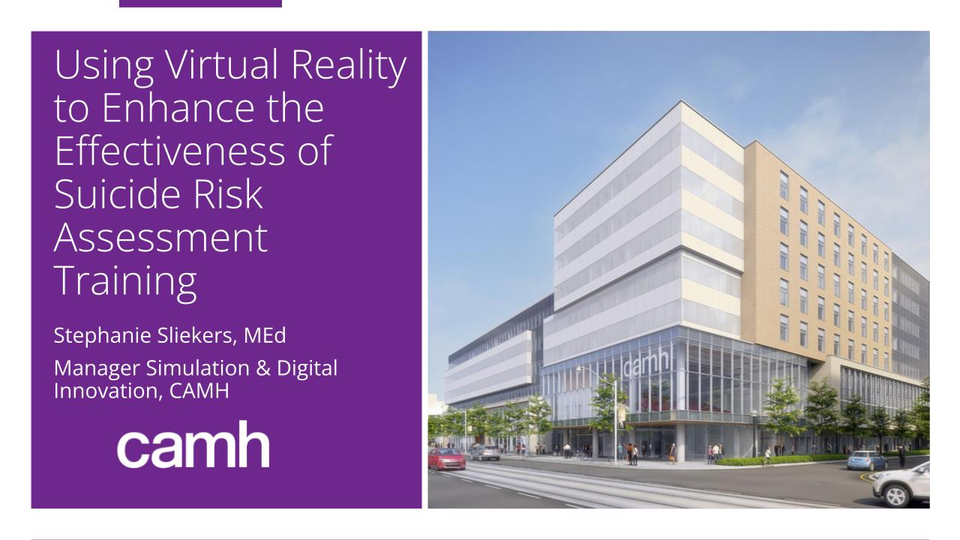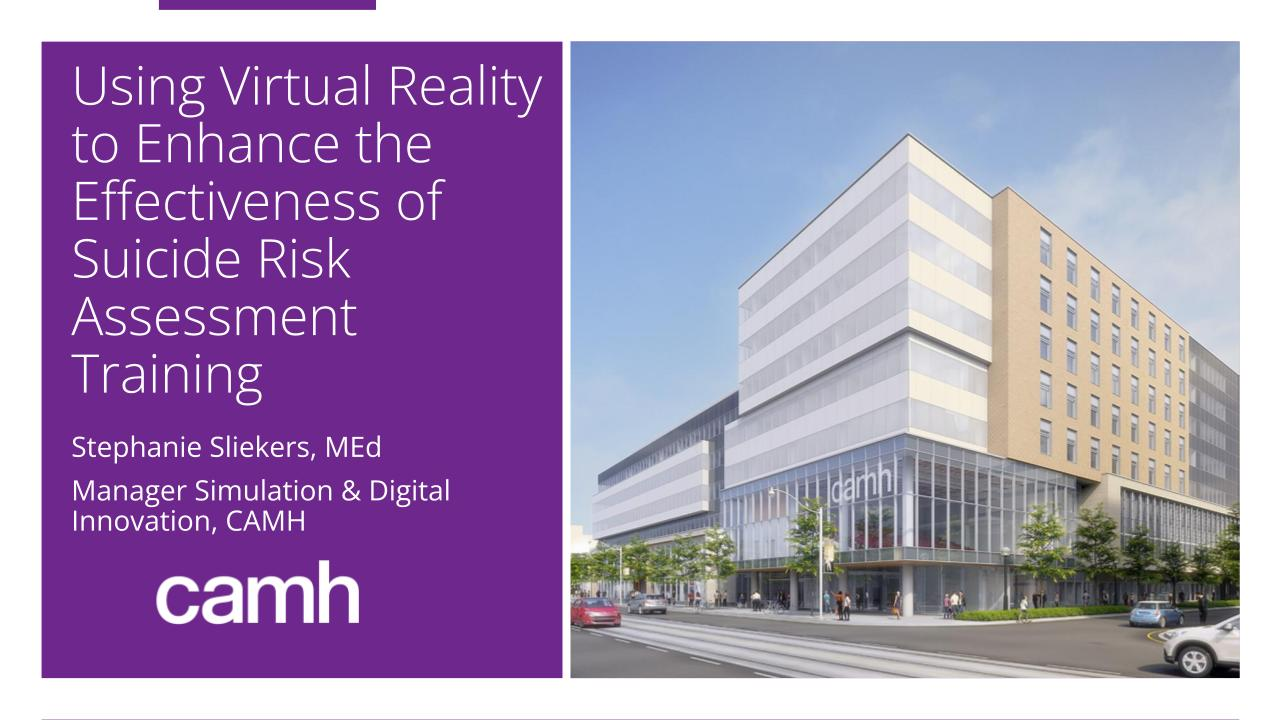Abstract
Background: The Covid-19 pandemic has exacerbated the mental health crisis and increased the focus on suicide prevention. There is an imperative need to train healthcare professionals to assess and support patients at risk of suicide. Data suggests that there is significant variability in suicide risk management skills across health professions, particularly crisis service providers.
Research question/hypothesis: A virtual reality (VR) simulation was developed to train students on how to conduct a suicide risk assessment (SRA). The VR simulates a clinical environment where participants wear an immersive VR headset to assess two avatar patients and formulate risk and strength profiles with the guidance of a virtual preceptor. This is followed by a facilitator-led debrief. Alternatively, participants can download a desktop version and complete a self-debrief. The aim of this study is to compare the experience of headset VR with a facilitator-led debrief to the desktop version with a self-debrief for this SRA training.
Method: A pilot trial will run in August 2022 using a mixed methods approach. A self-reported pre-and post-training evaluation will gather data on changes in knowledge, intention to change practice and overall experience. Follow-up focus groups will be conducted to gather more detail on learners’ experience with each training modality (VR headset vs. desktop) and debrief experience (facilitated debrief vs. self-debrief).
Results: This study will build on preliminary findings. User testing, post-training surveys completed by 29 learners with interdisciplinary mental health backgrounds and/or lived experience, showed that the headset VR (M= 4.54, SD= 0.73) was associated with higher scores for meeting the learning objectives (M=4.00, SD=0.68), and was regarded as more engaging. It is anticipated that this study will show greater educational benefit from the VR experience.
Conclusion: User testing suggests that VR may have greater educational benefit than desktop version for teaching residents how to conduct a SRA, however this study will examine which elements contributed to this conclusion. This work will help inform the healthcare simulation community about the effectiveness of VR simulation as a teaching modality and the importance of selecting the appropriate debrief style.
Full presentation of this work is available here:
https://docs.google.com/presentation/d/1TR-xucJW5FC5keYD2U-dx3So90E6XEJI/edit?usp=sharing&ouid=106597528624182899609&rtpof=true&sd=true





